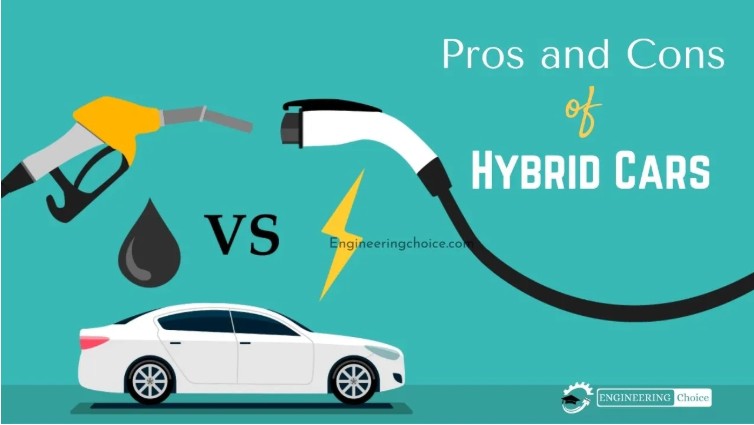The Rise of Electric and Hybrid Cars: How the Market is Changing
The automotive industry is witnessing a monumental shift as electric and hybrid cars are rapidly gaining popularity. With increasing environmental concerns, rising fuel costs, and government policies pushing for cleaner energy, it’s no surprise that more drivers are making the transition to greener vehicles. The demand for electric and hybrid vehicles has exploded in recent years, with major automakers and new startups jumping into the market to meet this need. As the industry evolves, platforms like AutosToday are positioning themselves as leading marketplaces, helping to accelerate the shift towards more sustainable forms of transportation.
The Shift Towards Sustainable Transportation
For decades, the automobile industry has been dominated by traditional gasoline and diesel-powered cars. However, with climate change and pollution becoming ever-growing concerns, society is looking for solutions to reduce its carbon footprint. Electric and hybrid cars present a promising answer. These vehicles emit less CO2, contribute to cleaner air, and rely on renewable energy sources. With more people becoming aware of the environmental impact of their driving choices, the demand for eco-friendly transportation has surged.
What Are Electric and Hybrid Cars?
Electric vehicles (EVs) and hybrid vehicles (HEVs) are both types of environmentally friendly vehicles, but they operate differently.
- Electric Vehicles (EVs): Fully electric cars run entirely on electricity, powered by rechargeable batteries. They don’t require gasoline and produce zero tailpipe emissions.
- Hybrid Vehicles (HEVs): Hybrid cars combine an internal combustion engine (ICE) with an electric motor. They can run on either the gasoline engine or the electric motor, depending on the driving conditions, improving fuel efficiency and reducing emissions.
Why Are Electric and Hybrid Cars Gaining Popularity?
Several factors contribute to the growing popularity of electric and hybrid vehicles.
- Environmental Awareness: Consumers are becoming more conscious of their environmental impact, and driving an EV or hybrid car is seen as a way to contribute to a cleaner, greener world.
- Cost Savings on Fuel: Traditional gasoline and diesel prices are rising, making fuel-efficient hybrid and electric cars a more economical option. EV owners also benefit from lower maintenance costs due to fewer moving parts in the drivetrain.
- Government Incentives and Policies: Many governments around the world are offering tax incentives, rebates, and subsidies to encourage the adoption of electric and hybrid cars. These policies are helping reduce the upfront costs, making these vehicles more accessible to a wider audience.
Technological Advances in Electric and Hybrid Vehicles
Technology plays a crucial role in the rise of electric and hybrid cars. One of the most significant advancements has been in battery technology. Newer batteries are more efficient, have a longer lifespan, and offer a greater range on a single charge. As a result, modern electric vehicles can now travel much farther without needing a recharge, addressing one of the most common concerns about EVs.
Additionally, the charging infrastructure for electric cars is improving rapidly. More charging stations are being built globally, allowing EV owners to charge their vehicles conveniently and quickly. Innovations like fast charging stations are further decreasing the time it takes to recharge a vehicle, making long-distance travel easier and more practical for EV owners.
The Market for Electric and Hybrid Cars
The global market for electric and hybrid vehicles is growing at an unprecedented rate. According to recent market reports, the sales of EVs have consistently risen year after year, with several countries reporting record sales. This growth is driven by increasing consumer demand, stricter emissions regulations, and advancements in vehicle technology.
Autostoday: A Marketplace Leading the Charge
Autostoday, as one of the biggest marketplaces for cars, plays a pivotal role in the growth of electric and hybrid vehicles. It provides an online platform where consumers can explore a wide range of electric and hybrid cars, from new models to certified pre-owned options. The platform offers detailed specifications, reviews, and pricing, making it easier for potential buyers to compare different vehicles and make an informed decision.
As more people look to make the switch to electric and hybrid cars, platforms like Autostoday provide an invaluable service by bringing together buyers and sellers, streamlining the purchasing process, and promoting the widespread adoption of eco-friendly transportation.
The Future of Electric and Hybrid Cars
The future of electric and hybrid vehicles is bright. As technology continues to improve, EVs and hybrids are expected to become more affordable, with better range, faster charging times, and increased availability of charging stations. Governments around the world are also setting ambitious targets for reducing greenhouse gas emissions, further driving the demand for greener vehicles.
Challenges in the EV and Hybrid Car Market
While the future looks promising, there are still challenges to overcome. One of the major hurdles is the initial cost of electric vehicles, which tends to be higher than traditional cars, even with government incentives. However, as production scales up and technology improves, the cost of EVs is expected to come down, making them more affordable for the average consumer.
Another challenge is the limited availability of charging stations in some areas. However, as more companies and governments invest in infrastructure, the network of charging stations is expanding, making it easier for drivers to find convenient charging options.
Consumer Perception and Adoption Rates
Consumer perception plays a significant role in the market adoption of electric and hybrid cars. While more people are becoming open to the idea of owning an EV or hybrid, some still have concerns about range anxiety (the fear of running out of battery on a long trip) and the overall convenience of owning an electric vehicle. Educating the public on the advantages of these vehicles and addressing their concerns through better infrastructure and technology will be key to overcoming these barriers.
The Role of Car Manufacturers
Car manufacturers are also adapting to the changing market by investing heavily in electric and hybrid technology. Traditional automakers like Toyota, BMW, and Ford have committed to offering more electric and hybrid models in their fleets, while new entrants like Tesla and Rivian are revolutionizing the industry with innovative electric-only models. These companies are responding to consumer demand for cleaner, more sustainable vehicles, and their efforts are pushing the industry forward.
Conclusion
The rise of electric and hybrid cars marks a significant shift in the automotive market, driven by environmental concerns, advancements in technology, and growing consumer demand. With marketplaces leading the way in making these vehicles more accessible, the transition to sustainable transportation is becoming easier and more practical for drivers around the world. As the market continues to grow, we can expect to see even more innovative, eco-friendly vehicles hitting the roads, helping to pave the way for a greener future.
FAQs
- What is the difference between electric and hybrid cars?
- Electric cars run entirely on electricity, while hybrid cars combine an internal combustion engine with an electric motor.
- Are electric cars better for the environment than hybrid cars?
- Yes, electric cars produce zero tailpipe emissions and are generally considered better for the environment than hybrid cars, which still rely on gasoline.
- How far can an electric car go on a single charge?
- The range of an electric car depends on the model, but many modern EVs can travel over 200 miles on a single charge.
- Are electric and hybrid cars more expensive than traditional vehicles?
- Initially, electric and hybrid vehicles may have a higher purchase price, but savings on fuel and maintenance can make them more cost-effective in the long run.







